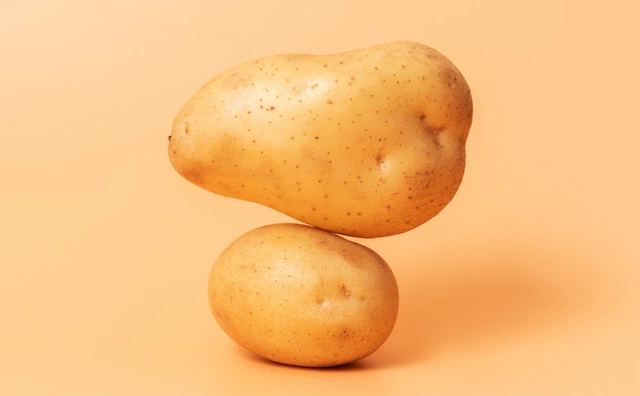
Is It Time To Increase Your Potato Intake? The Reasons They Could Be Better Than You Believe
Around the globe, potatoes have long been a mainstay of meals. This unassuming vegetable appears on dinner tables in a variety of forms, including mashed, baked, roasted, and fried. Despite their widespread use, potatoes often have a negative reputation, particularly from those striving to eat “clean” or control their carb intake. However, new nutritional research suggests that we could have undervalued our everyday potato. Are potatoes good for you, then? Is the true question.
You may be surprised by the answer, but it’s also a good one.
Not Just Carbs
People often think of potatoes as being heavy in calories and starchy carbohydrates. However, potatoes are really rich in nutrients, low in fat, and cholesterol-free when consumed whole and uncooked. Over 25% of your daily vitamin C requirements, a substantial quantity of potassium (even more than a banana), and a fair amount of fiber may all be found in one medium cooked potato (with skin).
B vitamins, especially B6, which is necessary for immune system function, metabolism, and brain function, are also found in potatoes. Complex carbohydrates, your body’s primary energy source, make up the majority of their carbohydrate composition. Therefore, when consumed in moderation, potatoes may be a good source of energy even if they might not fit into stringent low-carb regimens.
Potatoes And Contentment
There’s a reason why a potato-based dinner might make you feel full. The satiety index, which compares how satisfying a dish is against others, gives potatoes a high score. This implies that eating potatoes, particularly when they’re baked or boiled instead of fried, will probably make you feel fuller for longer.
This sensation of fullness may encourage better portion management and less needless snacking, both of which are critical for maintaining a healthy weight. When it comes to controlling hunger, are potatoes good for you? Yes, according to science.
Gut Health And Fiber
One of potatoes’ sometimes overlooked advantages is their fiber content, particularly when the skin is left on. Fiber is crucial for digestive health because it helps regulate blood sugar, keep the gut flora healthy, and prevent constipation.
Additionally, potatoes produce resistant starch when they are cooked and chilled, as in a potato salad. This kind of starch feeds the beneficial bacteria in your stomach and improves digestive health in general by acting as soluble fiber and resisting digestion.
Adaptability That Promotes Nutritious Eating
The potato’s remarkable adaptability is another advantage. Potatoes are inexpensive and simple to prepare, in contrast to many other “superfoods” that could be expensive or need complicated preparation. They are the perfect canvas for wholesome meals because of their capacity to absorb taste and adapt to different cuisines.
They may be roasted with herbs, baked with vegetables, mashed with a little olive oil, or boiled and mixed with greens for a filling salad. You may obtain all the advantages without consuming extra calories by using cooking techniques that don’t use a lot of oil or cream.
Dispelling The Myth
Because potatoes are often associated with processed foods like French fries, potato chips, or loaded baked potatoes covered in butter and sour cream, they get a lot of bad publicity. Some of the inherent health advantages of the vegetable may be offset by these versions’ increased consumption of fat, salt, and calories.
The entire potato is a nutrient-rich, whole plant item that merits more recognition when you isolate it from the way it’s often cooked in fast food situations.
Conclusion
Are potatoes good for you, then? Yes, particularly when consumed in their unprocessed, raw form. Rich in fiber, vitamins, minerals, and energy-boosting carbohydrates, potatoes may be a wise addition to a diet that is well-balanced.
Instead of being afraid of potatoes, it may be time to accept them for what they are: a wholesome, adaptable meal that promotes fullness, energy, and digestive health. You may find yourself questioning everything you believed to be true about the most famous tuber in the world if you choose healthy preparation techniques instead of using a deep fryer.
